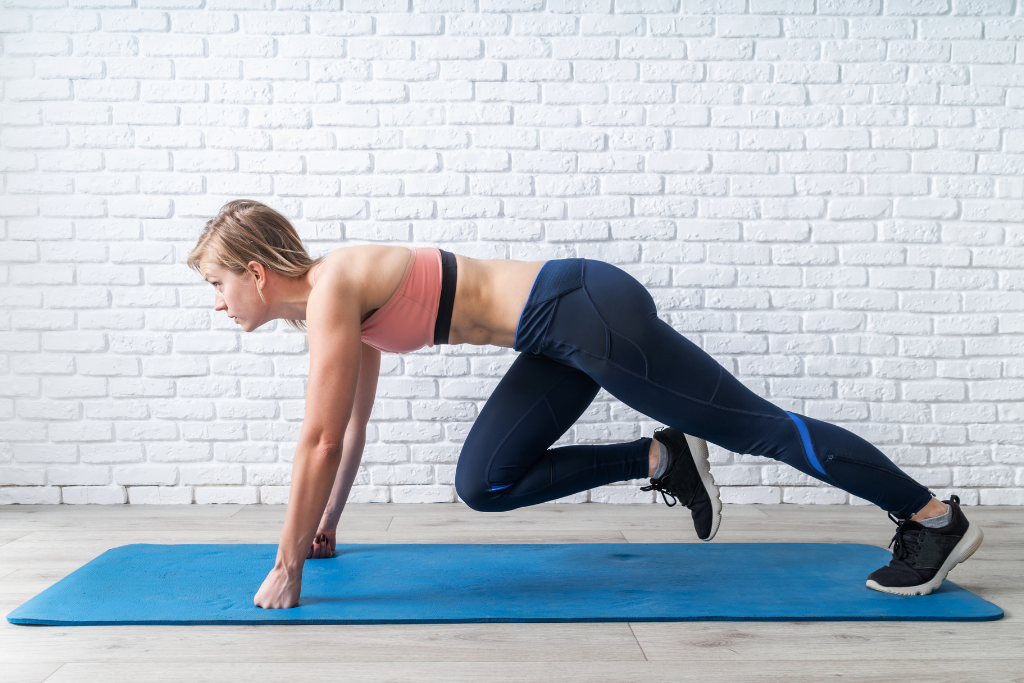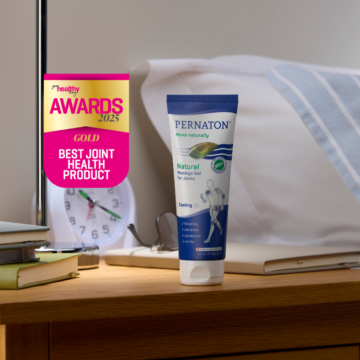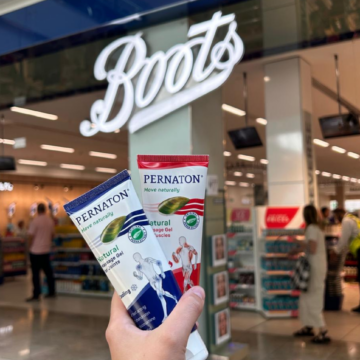10 Tips for Soothing an Athlete’s Aching Muscles

Sore and aching muscles are often a common side effect of exercise and, although this is usually perceived as a sign of a good workout, this isn’t always the case.
Inflammation can also signify muscle growth and healing which does help recovery in the long run but, if this pain is extreme, then you run the risk of damaging your muscles beyond repair.
Either way, as an athlete, soothing aching muscles as quickly as possible is vital to get moving again. So, here’s some tips and tricks to ease your aching muscles and aid recuperation.
How to Soothe Sore, Aching Muscles
1. Apply Heat Therapy Before Exercise
By applying heat to your muscles before any exercise, you will be able to help prevent muscle soreness or minimise the amount of pain you would normally feel later on. From warm damp towels to running a hot bath, there are a number of ways you can enjoy heat therapy in your own home.
Pernaton Gel Forte provides heat therapy on-the-go, so you can have it on-hand wherever you exercise – whether that be the gym or a sports club. The Cayenne Pepper Extract diffuses an intense, long-lasting and comfortable heat sensation to increase skin circulation, relieve tensions and regenerate muscles. Plus, the 100% natural Perna Extract from New Zealand’s Green-lipped Mussel concentrates the relief into the muscle tissue to fight aches and inflammation.
2. Massage Your Aching Muscles After Exercise
In the same way that Pernaton Gel Forte increases circulation, the massaging movement of applying it also aids soothing aching muscles. This action delivers more nutrients and oxygen which consequently reduces swelling and inflammation. Massage guns are also useful tools to help muscle recovery as the rapid vibrations promote blood flow to the affected areas.
3. Use a Foam Roller for Self-Myofascial Release

Foam rollers are tools that you put in between the muscle you’d like to affect and the floor. Then, you move this part of the body along the roller both forwards and backwards multiple times. This direct pressure realigns collagen fibres and has a similar effect to stretching the muscle, therefore decreasing resistance and relaxing the muscle.
4. Always Keep Hydrated Before, During & After Exercise
Staying hydrated throughout the day is beneficial for our health in so many ways and making sure you’re not dehydrated during and after exercise is incredibly important. Consistent hydration keeps the fluids moving through your system which flushes out waste products and delivers nutrients to your muscles. This, in turn, eases inflammation and will reduce the aching pain you may feel.
5. Maintain a Consistently Healthy Diet
Although it may sound obvious, eating healthy foods and feeding your muscles the vitamins and nutrients they need will help soothe aching muscles. Vitamin C, zinc, protein and carbohydrates are all needed to repair your muscles and help them grow back stronger. Always prioritise your meals and enjoy a post-exercise snack to keep your body nourished.
6. Get Quality Sleep Every Night

It is common knowledge that adults should aim to get between 7-9 hours of sleep every night. If you’re an athlete, this is especially important as shuteye is useful for muscle recovery and soothing aches and pains. Non-rapid eye movement (NREM) sleep in particular has proven to increase protein synthesis which repairs damaged muscles and strengthens them every cycle.
7. Remember to Warm Up Before Exercising
Warming up before exercising helps get a good amount of blood flow to your muscles, priming them for reparation afterwards. By using stretching exercises, you can warm up the muscles to soothe them pre-workout and prevent any injury.
8. Remember to Cool Down After Exercising
One top tip to prevent sore muscles is to not stop your workout abruptly and remember to cool down after exercising. Immediately stopping movement can result in fluid building up in and around the muscles and joints, increasing the risk of aches and pains.
9. Make Time for Resting to Aid Recovery

Overtraining can turn aching muscles into injured muscles which will put you out of action for longer; your muscle fibres may end up getting tiny tears in them. It’s vital you take rest days or active recovery, so your muscles have time to relax and rejuvenate. Resting doesn’t necessarily mean doing nothing for a day; it means either exercising a different group of muscles or doing gentle exercise.
10. Mix in Light Exercise Amongst Your Normal Routine
Following on from the point above, gentle movement is beneficial after a tough workout and even with sore muscles. From yoga to swimming, light resistance training to a gentle jog, this type of exercise can aid soothing aching muscles more than ceasing exercise sessions altogether. It helps disperse any lactic acid build-up and enables your muscles to repair and prepare for the next higher intensity workout.
As well as applying these tips to your intense workout routines for athletes, always make sure you have Pernaton Gel Forte with you at all times for immediate and long-lasting relief. Shop today from: Amazon, our website and selected pharmacies!
Related Posts


